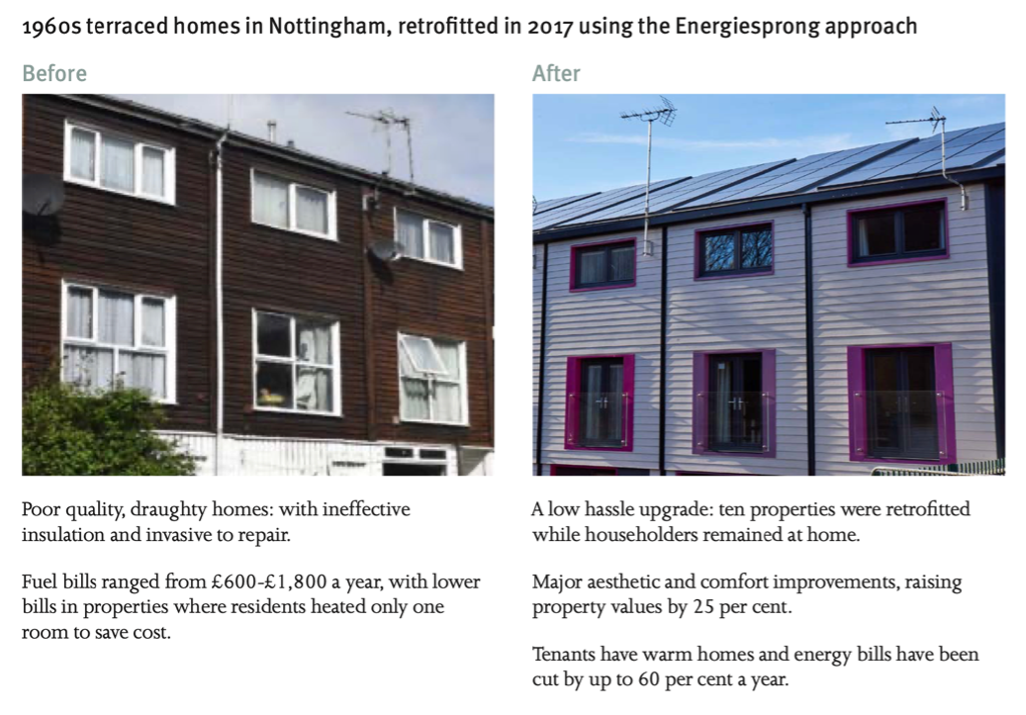The win-win: achieving energy saving and energy security
How to make this alignment work
Steve Wardlaw, November 2023

Sometimes in life, macro and micro align perfectly. In this piece I want to talk about how small changes across the whole country can have a benefit at a national and international level.
If you are an energy nerd (ahem) the concept of active grids, small modular reactors for nuclear, or high voltage distribution grids are fascinating. If you are lucky enough not to be an energy nerd, often your concerns on energy boil down to this - how do I reduce my energy bill?
More importantly for this discussion, how does a government help to reduce energy bills or incentivize energy suppliers to do the same. The current trend is for a more interventionist government, but where and how to intervene can be crucial to success or failure.
Put simply, any consumer of a commodity can reduce their costs in only one of four ways:
reduce the per unit charge (this would mean further reductions in the OFGEM price cap, and OFGEM does not have the ability to alter the mechanism)
reduce any side charges (for energy this is standing charges, which do penalise low energy users)
use less (energy management and energy efficiency), or
grow your own’ (heat pumps and solar).
Governments and advisers love big policy announcements on the first two points but often forget points three and four. Yet these last two can be the most important and empowering for members of the public, allowing them to feel that they can have some control over a massive part of their monthly expenditure.
This principle holds same even for the opposition. Labour is looking to establish GB Energy to direct investment into UK assets, create a thriving clean energy tech sector in the UK, and grow an international energy portfolio that will make GB Energy self-sustaining.
I think GB Energy is a great idea (and of its time). The development of clean tech is vital, but GB Energy’s scope does not deal with points three and four. I’ll come back to this but GB Energy’s success will be helped by a more holistic approach that the public can understand and see as relevant to their lives.
Use less
This almost goes without saying – except the government hasn’t been saying it.
Britain has some amazing homes – but our housing stock is the least energy efficient in Europe. There was a target to retrofit all homes to get them to EPC band C by 2035 but like a lot of current green targets that seems to have gone quiet.
Even some of the easier solutions have failed – after energy efficiency grants were cut in 2013, insulation rates fell by 92%. There is a plan by the Labour party to insulate 2m homes a year – but there are still 19m homes in the UK that fall below EPC band C. That means extra costs, health risks, and extra misery in a cost of living crisis. This would cost £6bn a year for 10 years, but help those families upgraded to save £500 per year.
As for other energy saving measures, there are some great ideas out there. But often public take up is low. Why? Sometimes hassle is a factor, or aesthetics. For example, people regularly get or upgrade double glazing, despite it being a much less efficient energy saving method than other measures.
There are some radical ideas out there – the think tank Green Alliance has been promoting the idea of ‘Energiesprong’ which is a one-time retrofit best suited, say, to 1960s homes, where they are wholly clad in a new shell with a solar roof and air or ground heat source, based on a whole-life funding model (ie it pays for itself out of energy savings) with the benefit of reduced maintenance costs and a home value uplift because of the (often) improved aesthetics.
These radical retrofits can reduce a home’s total energy demand by up to 80%. It also slashes the UK’s gas needs – again tying in with our energy security (see below). However, although costs are coming down, they were still averaging £75,000 in 2019 – though with an increased uptake these costs could come down to £35,000. If there was commitment to 5,000 homes a year the cost might be £120-130m a year, in comparison to £6bn a year on home insulation.
Of course, this does not help with the large number of Victorian homes. Planning can assist here – for example, why in some areas is there often a blanket ban on double glazing for listed properties? New types are almost unnoticeable and produce immediate savings. All UK planning needs to be reviewed in any case, and this is just another example of poor outcomes. We should immediately look towards a national planning guideline that stops planning authorities banning energy savings measures on a whim.

Grow your own
Although Energiesprong is a holistic view of both insulation and home generation, mostly these are still seen as separate ideas, often because of the scale of costs.
Reduction of consumption is one way to cut costs and increase national energy security. The other is to generate energy yourself.
There has been a lot of (too much) discussion on solar panels and heat pumps. The problem with these is that they are too expensive to generate your money back within a reasonable time. According to moneysavingexpert, you could recoup your cost in about 16 to 21 years. The maths seems a little better for air source or ground source heat pumps (10-14 years).
But we need some honesty in this discussion. Unless you are fortunate family where money is not an issue, those are not attractive sums for your average household, even before you factor in the hassle factor and the aesthetics, especially on solar panels.
As mentioned above the government needs to be more directive. The benefits for consumers are clear over time, but there is also a government/national benefit that should be taken into account when looking at the maths.
This may be where GB Energy, in an expanded holistic role, could step in. As well as funding new clean tech and being the base funder for new clean capacity in the UK, it could use its portfolio to be a grant giver in this area, perhaps on a ‘match fund’ basis with a windfall tax from the generators? The grants could be, say, 50% of costs. This takes the recoup time to a more reasonable 5 to 7 years. And when a homeowner meets the other 50%, there could be a flexible tax credit, perhaps in reduced stamp duty costs in the case of a future move?
And although unpopular, this tax break should be extended to private landlords, not just because of the importance of energy saving. Although slightly off-topic, too many private renters live in bad accommodation, or accommodation where energy costs are literally through the roof because the landlord is not incentivised to lay out capital to reduce a tenant’s energy bill. We need to think of the bigger picture here.
An ongoing grant system may seem generous, but there are substantial national security reasons why a broad roll-out of all these measures should be a priority.
Why energy efficiency is good for energy national security
Let’s start with a caveat with to green/energy efficiency/insulation targets. The government has missed them all and it looks like It will continue to backtrack.
But what data do we have on the level of savings and their effect?
Statistics on consumption projections are notoriously vague. But even with margins of errors some of the figures are material. Under a 2022 study by Carbon Brief, UK gas emissions would have been 13% lower (65 terrawatt hours) if we had not ‘cut the green crap’ in 2013.
That is equivalent to twice our imports of Russian gas in 2021. Although most of this would have come from the big headline grabbers such as onshore wind and solar, about 20% would have come from home insulation – the bit that politicians don’t talk about. These figures then also do not yet include home solar and heat pumps. This would have meant further savings, and further distancing from a global hydrocarbon market dominated by unstable players in unstable areas.
Other benefits of reduced consumption include reduced carbon emissions - an aid to net zero. Furthermore, looking at Labour’s Warm Homes Plan, just a national home insulation plan (apart from reducing home energy costs) reduces gas imports by 15%, and could create 200,000 jobs.
In summary, it is vital as we enter a period of global instability maybe lasting decades that the United Kingdom reviews its resilience. The age of cheap/easy hydrocarbons is over, and net zero demands that we move away from fossil fuels. A government determined to push though the above policies will win the appreciation of its electorate (who now want more government direction) through cheaper household costs and through a visible demonstration to a commitment to net zero. On a broader level, that investment in the people of the United Kingdom moves us a large way towards the energy security that we want and, frankly, need.
November 2023
Cover: stock
Image in article: Green Alliance